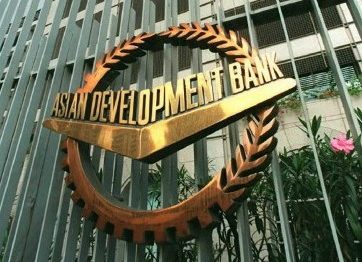
Asian Development Bank (ADB). (File photo from AFP)
MANILA, Philippines — The Asian Development Bank (ADB) has green-lit another loan worth $200 million for its host-country the Philippines, this time to support the social amelioration program for poor households deemed vulnerable to COVID-19’s socioeconomic fallout.
In a statement Monday night, the Manila-based multilateral lender said that the fresh loan under its Social Protection Support Project-Second Additional Financing “will contribute to the $726 million required to provide emergency subsidies to 4Ps households in April and May 2020,” referring to the beneficiaries of the Pantawid Pamilyang Pilipino Program.
Under the Bayanihan to Heal as One Act, 18 million families, including 4.3 million beneficiary-households of the 4Ps, had qualified to receive dole outs of P5,000-8,000 a month during a two-month period amid the enhanced community quarantine (ECQ) imposed in Luzon and other parts of the country to contain the spread of the COVID-19 disease.
“This global pandemic, of a kind not seen in the last century, has disrupted the livelihoods of millions of Filipinos and could set back the very substantial gains the country has made in reducing poverty in recent years. The new loan supports the government’s emergency subsidy program, which was designed to help vulnerable households get through this very difficult period and avoid falling into poverty,” ADB vice president Ahmed M. Saeed said.
“The ADB is also preparing an Expanded Social Assistance Project to support the government’s medium-term financing of the 4Ps,” the lender said, citing that it had been supporting the conditional cash transfer program since 2010.
Last week, the ADB approved a $1.5-billion quick-disbursing loan for the Philippines as budgetary support in the fight against COVID-19.
The ADB also earlier extended a $3-million grant to the Philippines to boost its COVID-19 testing capability, on top of a $5-million grant for the public-private “Bayan Bayanihan” initiative giving away nutritious food baskets to 140,000 poor families in Metro Manila.
Besides these hefty loan and grants it already extended to the Philippines for COVID-19 response, the ADB remains committed to financing other public programs and projects, especially infrastructure, in its over $3.5-billion 2020 lending pipeline.
“When this crisis started, I think the ADB, with the Philippines, was well-positioned to provide comprehensive support. Our CPS [country partnership strategy] has three strategic pillars, two of them are very important to the crisis that we have at hand. The first pillar is investing in people, and the other one is promoting local economic development. So within those two pillars, we have a set of programs and projects that are well-aligned to the sectors that will need support during the pandemic, during the relief period, [and] also during the recovery period,” ADB country director for the Philippines Kelly Bird told reporters via Microsoft Teams last Friday.
For 2020, lined up for ADB approval were the following policy-based program loans and projects: $400-million Capital Market Generated Infrastructure Financing, Subprogram 1; $400-million Competitive and Inclusive Agriculture Development Program, Subprogram 1; $500-million Disaster Resilience Improvement Program; $500-million Expanded Social Assistance Program; $300-million Inclusive Finance Development Program, Subprogram 2; and $26-million Local Government Property Tax Project.
Bird said that these upcoming policy-based loans were all expected to be approved by July.
As for infrastructure, ADB financing scheduled to be approved this year included $1.2 billion for the South Commuter Railway Project; $130 million for the Edsa Greenways Project; and $126 million for the Angat Water Transmission Improvement Project.
“For the infrastructure projects, you’ve heard from the government that the ‘Build, Build, Build’ infrastructure program is going to be critically important to the economic recovery because it will help to get many Filipinos back to work. So these are prioritized,” Bird said.
“What we are though doing with the government is that, they will always go through a prioritization process, and we are clearly working closely with them and monitoring the situation to the extent that will affect our 2020 program. So we are, of course, monitoring it and we remain flexible with the government. And we will always, in this process, take the guidance from the government in terms of scheduling approval of different [infrastructure] programs and projects,” Bird added.
The government had been reserving budget funds for flagship infrastructure projects belonging to its ambitious P4.4-trillion “Build, Build, Build” program, which Finance Secretary and the ADB’s governor for the Philippines Carlos G. Dominguez III earlier said will create jobs and business opportunities post-pandemic.